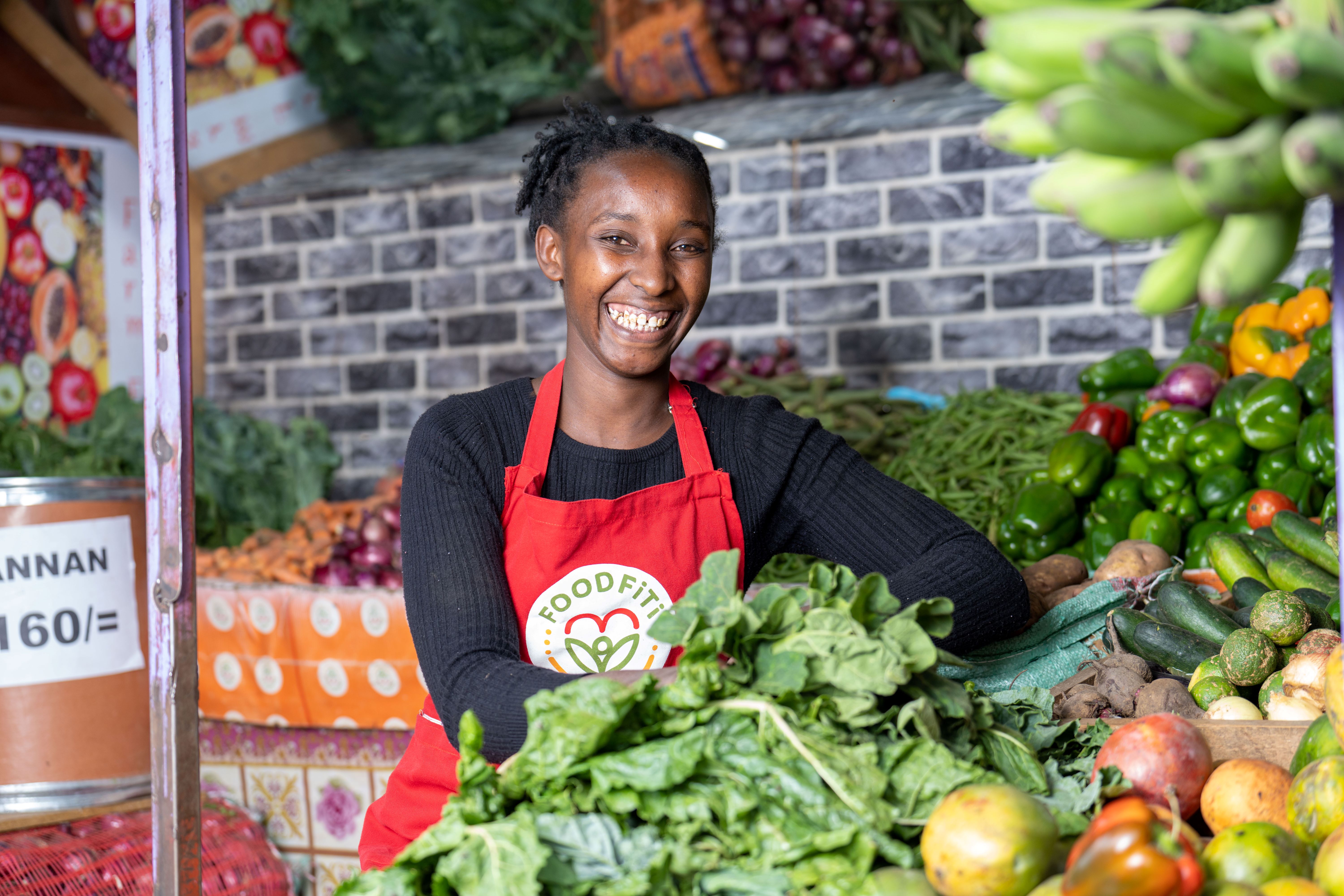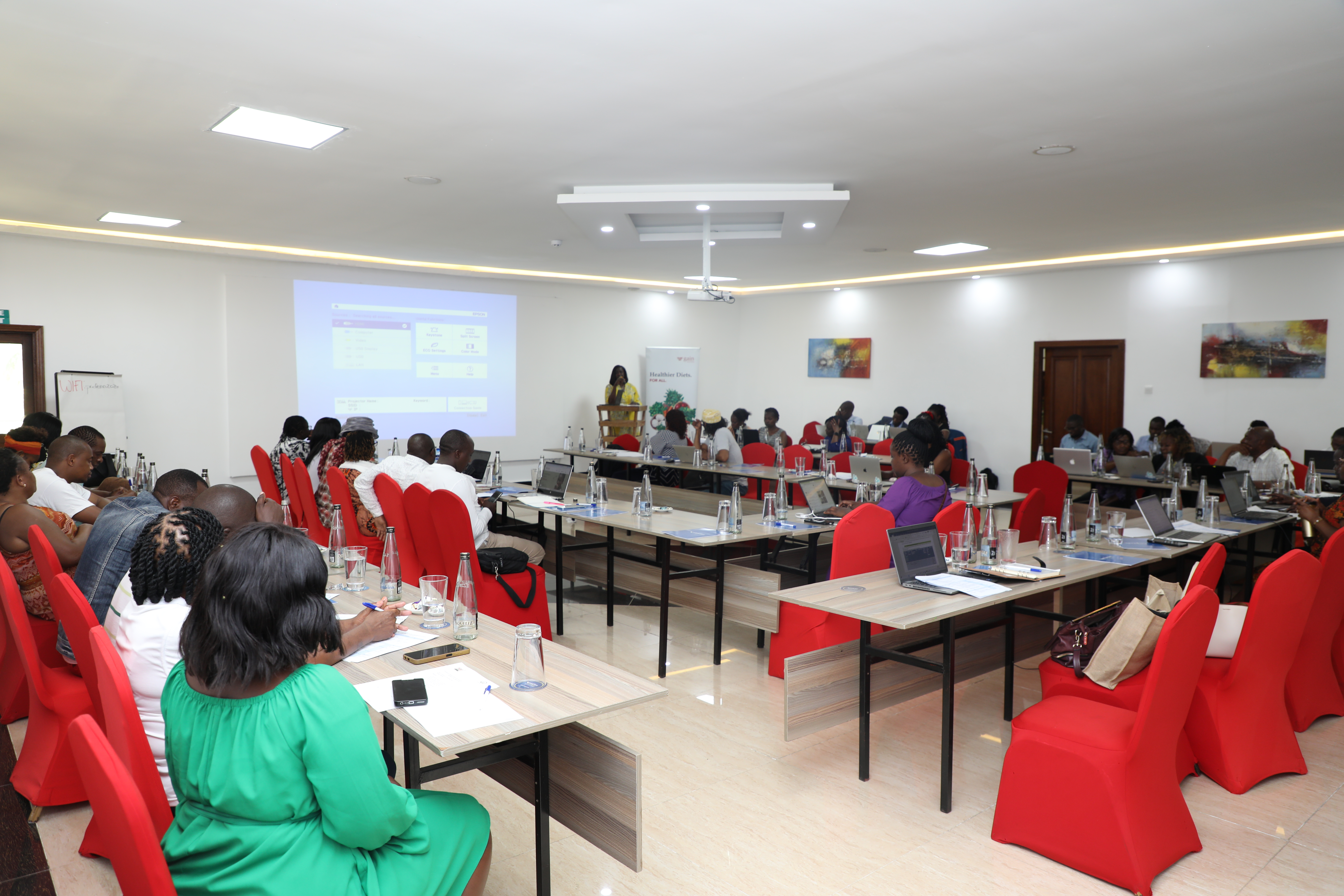Every morning in Nairobi’s informal settlements, thousands of mothers head to the local market, searching for fresh vegetables to feed their families. For many, affordability is a top concern—but so is safety. Mary, a mother of three, recalls the time her youngest fell ill after a meal of sukuma wiki (kales). The vegetables had looked fine, but invisible risks like pesticide residues or poor handling were the real culprits.
Across the City, 27-year-old Joseph joins dozens of young men at a construction site, hoping to earn enough to make it through the week. With limited pay and rising costs of living, lunch often comes from a nearby kibanda—a roadside kiosk offering fast, affordable meals. It’s filling and convenient, but rarely is the question asked: Is the food safe?
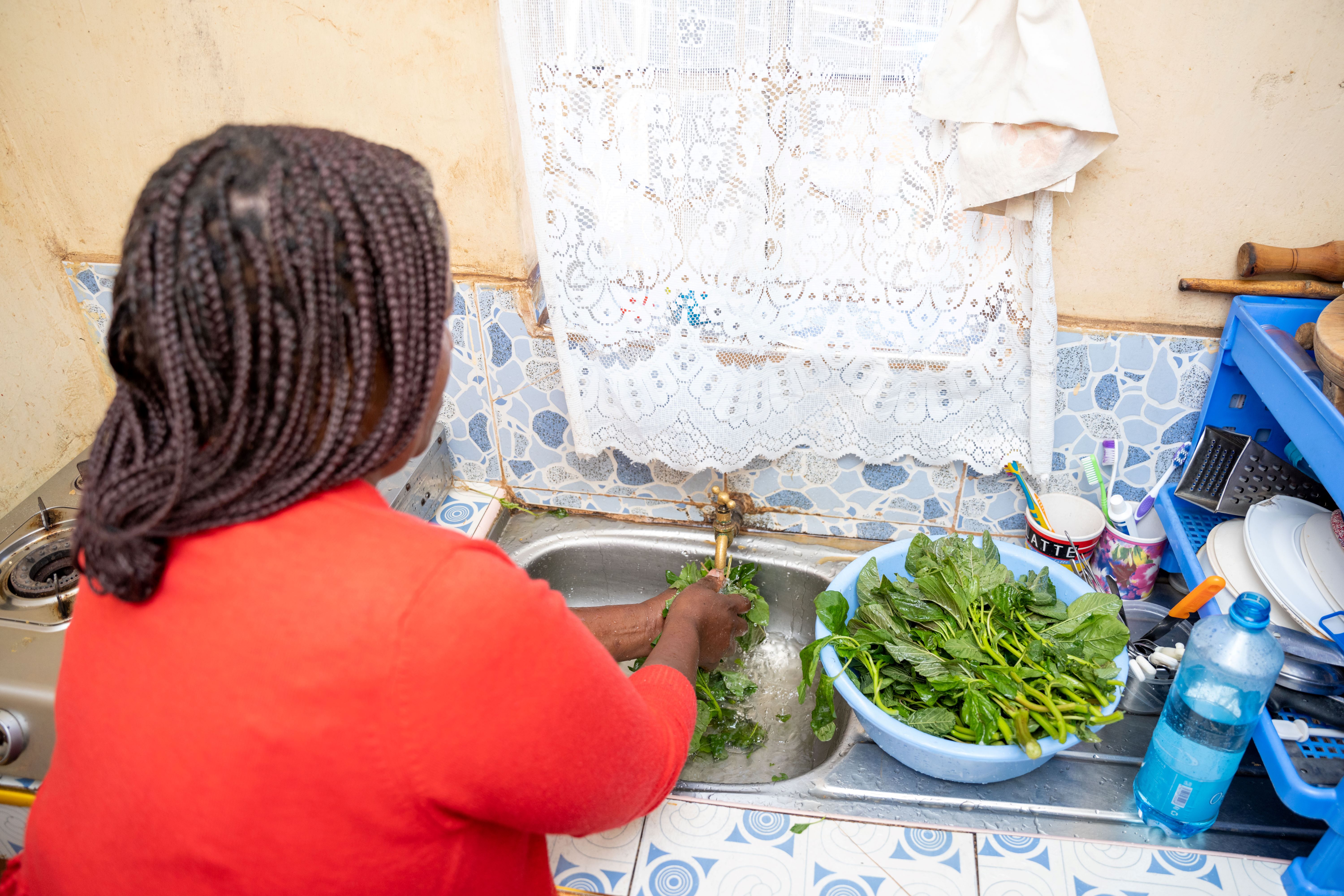
Mary’s and Joseph’s stories are not unique. In Kenya and across sub-Saharan Africa, food safety is an invisible but urgent threat. According to the World Health Organization, foodborne illnesses claim more than 2.2 million lives annually in developing countries, with children and low-income populations most at risk. Whether it’s pathogens, chemical contamination, or poor market hygiene, unsafe food quietly undermines public health, nutrition, and economic resilience.
This year’s World Food Safety Day (WFSD) theme, “Food Safety: Science in Action,” is a timely call to arms. It reminds us that science is not just about laboratories or policies—it’s about saving lives, preventing illness, and restoring trust in the food we eat every day. But to make food safety truly accessible and actionable, science must be translated into practice—from the policy table to the vegetable stall, from the county hall to the food kibanda. We should use scientific knowledge to understand, prevent, and respond to foodborne hazards.
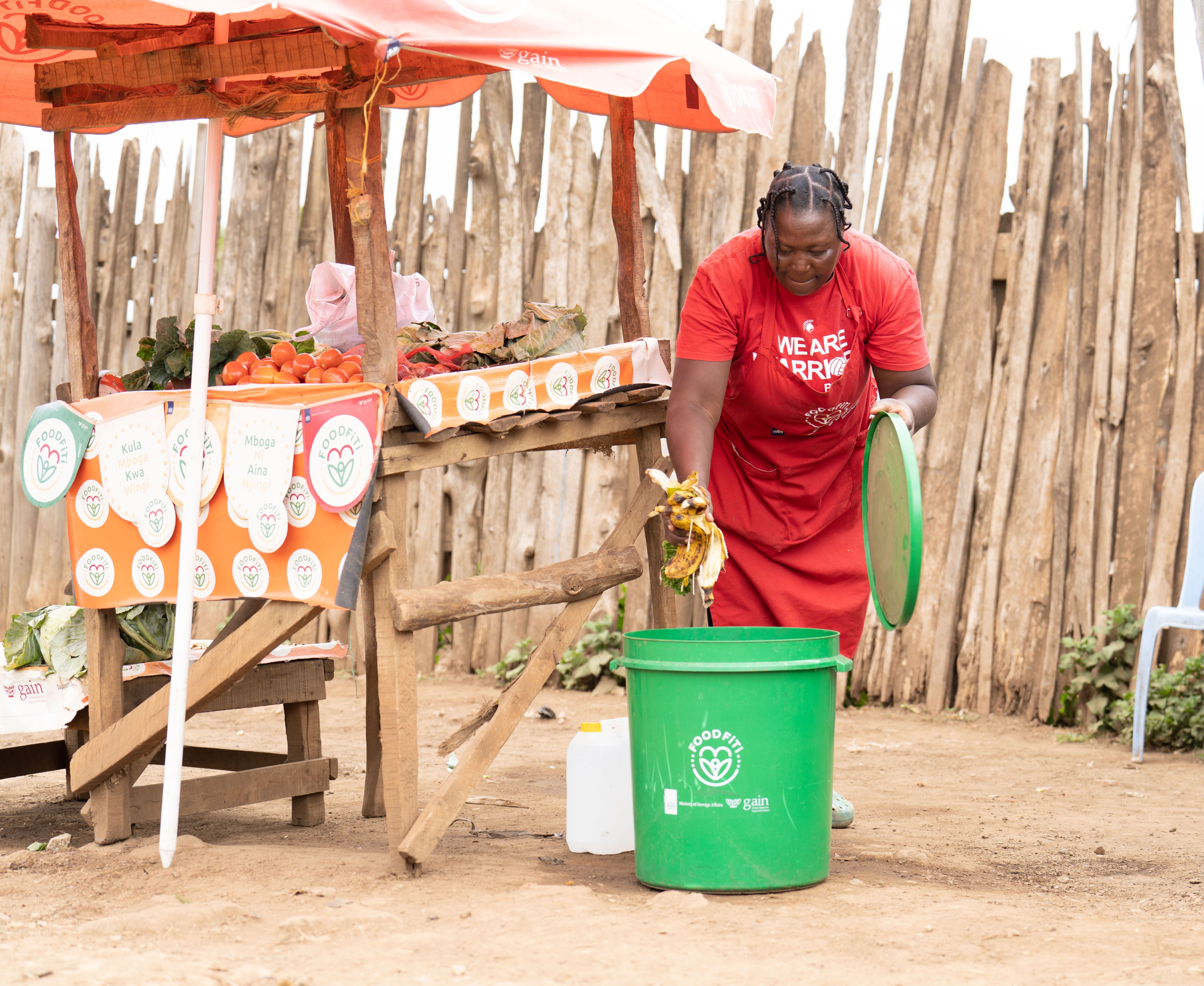
Why Science Matters in Food Safety
Science plays a vital role in guiding efforts to reduce illness, cut costs, and save lives—making it a cornerstone of effective food safety systems. For example, Kenya’s horticulture industry relies on national standards like KS 1758-2, which sets out sanitary and safety criteria for the production, handling, and sale of fruits and vegetables, to reduce contamination from farm to fork. But standards alone aren’t enough—they need buy-in, implementation, and consistent enforcement.
Through its Vegetables for All project, the Global Alliance for Improved Nutrition (GAIN) is working with county governments and partners like KEPHIS and Crop Nuts to bring scientific tools closer to farmers and vendors. This includes training on good agricultural and handling practices, testing for Maximum Residue Levels (MRLs), and improving stall hygiene for last-mile vendors—especially mama mbogas who are a cornerstone of urban food supply.
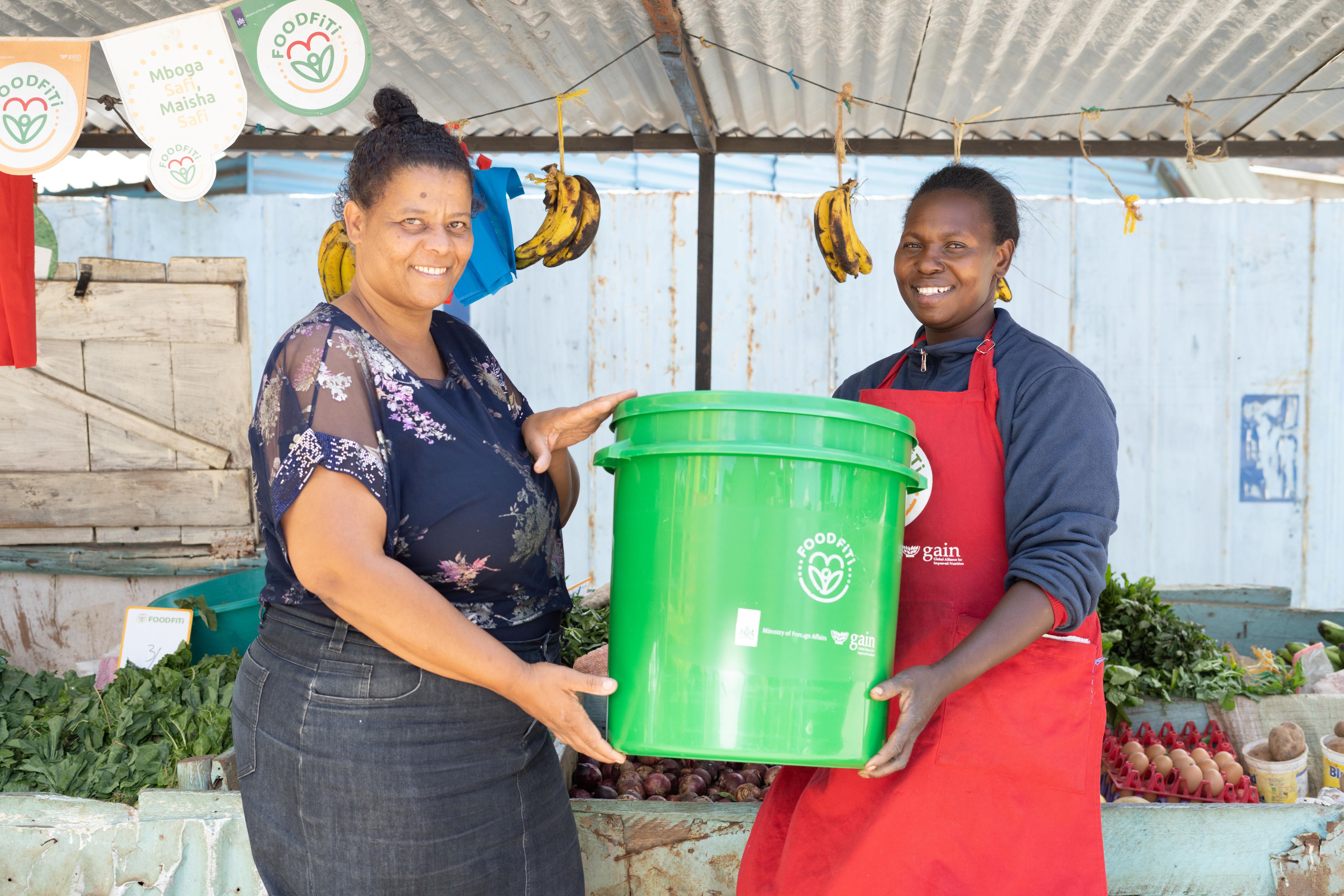
From Policy to Plate: Making Science Work for People
Policies are not just paperwork. They are powerful instruments to transform food safety systems—when they are inclusive and people-centred.
With technical support from GAIN under the CAtalyzing Strengthened policy aCtion for heAlthy Diets and resiliencE (CASCADE) project, the Nairobi County passed the Food Safety and Fortification Act. This is a landmark legislation that brings together science, governance, and public health in one framework. What does this mean for people like Mary and Joseph? It means cleaner markets, stronger oversight, and better protection against contaminated food. GAIN is currently supporting the County to develop the Nairobi County Food Safety Policy and, thereafter, a policy implementation framework to guide the effective roll-out of the Act.
GAIN is also supporting the development of food safety legislation in Mombasa, Machakos, and Kiambu Counties. These laws propose the creation of County Food Safety Committees—bringing together health, agriculture, trade, and environment departments to coordinate action. When these multisectoral teams work together, enforcement is smarter, and consumers are safer. These committees will strengthen surveillance systems to ensure all food handlers—from mama mbogas and market vendors to hotels, schools, hospitals, and transporters—adhere to food safety standards that protect public health.
At the national level, GAIN is contributing to the formulation of the Consumer Protection Policy, which seeks to address gaps in food safety regulation, enforcement, and public awareness. It aims to ensure that every Kenyan—regardless of income or location—can trust the food in their plate.
Championing Global Standards for Local Markets
Food safety challenges are particularly acute in traditional markets, where most low-income families buy their food. In 2022, GAIN through Technical Assistants to the Government of Kenya proposed new Codex Guidelines on Food Hygiene in Traditional Markets—international principles aimed at improving market conditions in informal settings. With Kenya leading the charge, the guidelines were officially adopted in 2024.
Now, GAIN is working to bring those global standards to life in five traditional markets in Kenya, translating technical recommendations into actionable steps for vendors and market authorities alike. This is science in action—rooted in context, co-created with communities, and focused on outcomes.
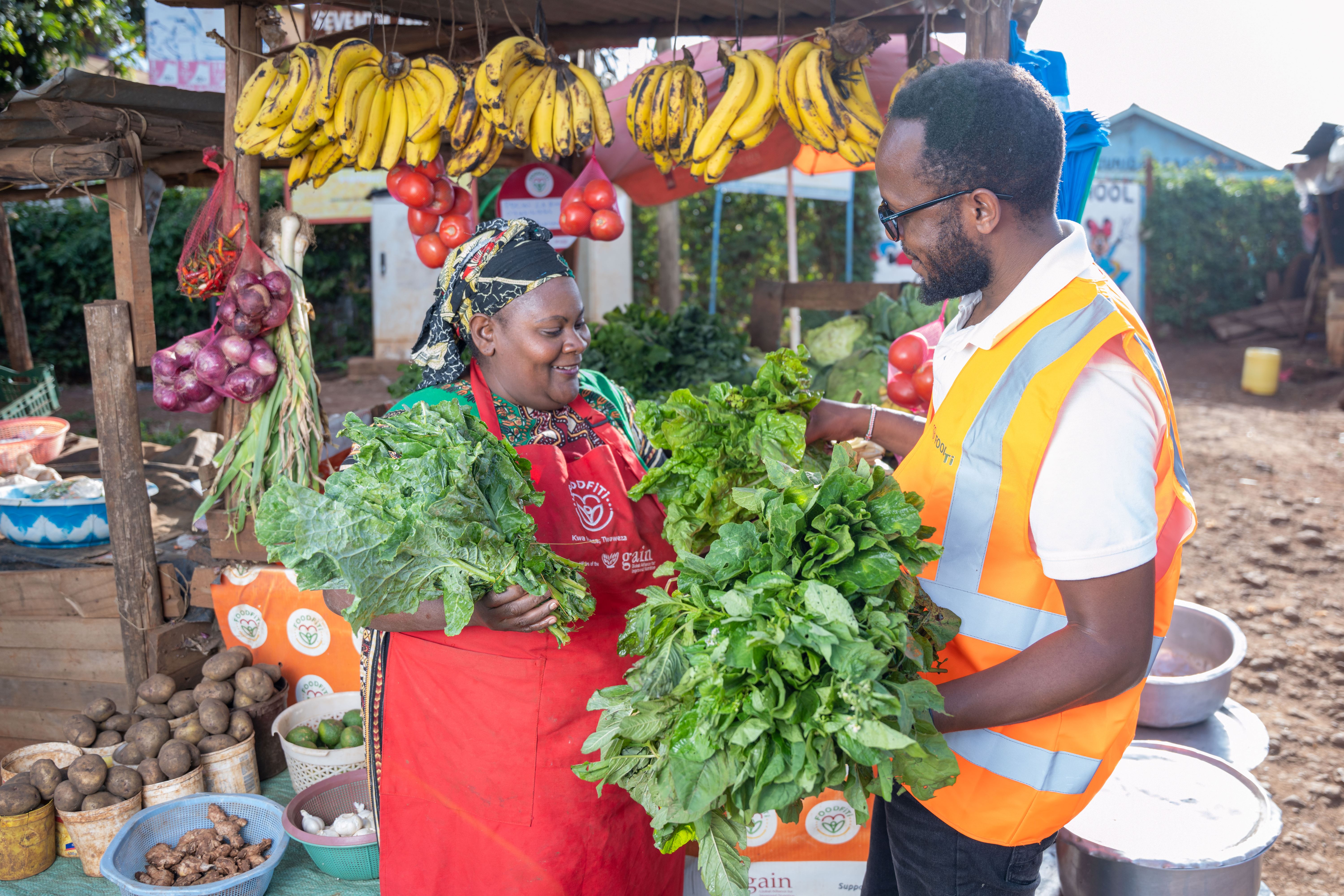
Food Safety Is Everyone’s Business
The 2025 World Food Safety Day reminds us that food safety is everyone’s business. From policymakers to mama mbogas, from farmers to distributors, we all have a role to play in putting science into action to protect public health.
For Joseph, and many young men like him working long hours at construction sites, a hot plate of githeri or rice and beans from the nearest kibanda is not just lunch—it’s a lifeline. But if that meal is prepared with vegetables handled unsafely, water that’s contaminated, or cooking surfaces that aren’t clean, Joseph’s health is put at risk. For someone living on a tight budget and without medical insurance, any foodborne illness could mean lost wages, hospital bills, or worse.
That’s why food safety cannot be left to chance. National and County Governments must prioritize and fund the implementation of food safety regulations, establish active food safety committees, and promote public awareness. Development partners should continue supporting training, testing, and policy implementation to close gaps in food safety. The private sector needs to adopt best practices across the supply chain and invest in traceability and quality assurance systems. And the media must amplify public understanding around food safety threats and solutions. Through stronger partnerships, smarter policies, and a shared commitment to safer food systems, we can build a healthier, more resilient future for all.
Science gives us the tools—we must now ensure those tools are in the hands of every farmer, market vendor, every government official, and every kibanda cook. Because when food is safe, Joseph can work another day, Mary’s children can grow healthy, and Kenya can thrive.
